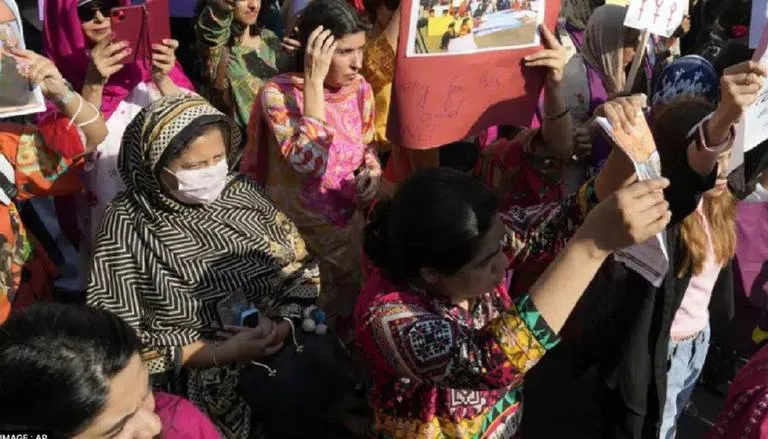In Pakistan, female prisoners encounter bias and ill-treatment, with several experiencing verbal and physical harassment. Moreover, they are deprived of medical attention by both the jail personnel and fellow inmates, reported Lahore-based daily newspaper The Nation.
The ordeal of being incarcerated often entails distress, inequity, and shattered expectations for women. In Pakistan, many women are grappling with a harsh existence within the confines of the prison walls, which may be difficult for most of us to fathom. Every day, they struggle to endure a system that appears to have abandoned them. Despite their voices being stifled, their anguish cannot be ignored, opined ANI.
Samina Shah, an educationist, philanthropist and social worker, working for the uplift of women in Pakistan said, “Arbitrary detention is one of the most pressing issues faced by women in Pakistani prisons.”
She also said, “Many women are detained without charge or trial, often as a result of cultural and social norms that view women as property and restrict their freedom of movement and association,” adding that a clear violation of international human rights standards, which require that all detainees be afforded due process and a fair trial, as per a report penned by Muhammad Ali Falak in a Pakistan English Daily.
Most women detained for drug-related crimes: Report
In 2020, Shumaila Kanwal, a 27-year-old woman, passed away while in custody on allegations of drug trafficking. Her demise has highlighted the problem of custodial deaths in Pakistan, which are frequently linked to maltreatment and exploitation by law enforcement personnel and jail staff.
As per a report by Human Rights Watch, most women incarcerated in Pakistani prisons are detained for drug-related offenses. These women are not drug traffickers but instead, they are low-level drug carriers or addicts who were coerced into transporting drugs. The same report also suggests that women in Pakistani prisons face significant barriers in accessing legal counsel. This is partly because of inadequate resources and expertise among legal aid organizations, and also due to cultural and societal beliefs that undervalue women’s ability to receive legal representation, according to The Nation.
In addition, as per the International Committee of the Red Cross, many women in Pakistani jails experience untreated illnesses and injuries, which is partially due to a scarcity of skilled medical personnel and inadequate medical facilities. The World Health Organization has also expressed concern regarding the high risk of sexual, physical, and psychological abuse faced by women in Pakistani prisons.
The COVID-19 pandemic has further aggravated these issues, exacerbating the challenges faced by women in prison.
The Pakistan Bureau of Statistics has reported that the number of women incarcerated in Pakistani prisons has increased by over 20 percent in the past decade. This trend is worrying because it suggests that women in custody are not being adequately safeguarded.
The issue of women in Pakistani prisons is complex and has severe human rights implications. This calls for a comprehensive approach that includes enhancing access to legal representation, improving the living conditions of prisons, expanding access to healthcare services, and addressing cultural and societal attitudes that contribute to the mistreatment of women in detention. As reported by The Nation, it is only by working together that we can hope to achieve a more equitable and just society for everyone, irrespective of their legal status or gender.
